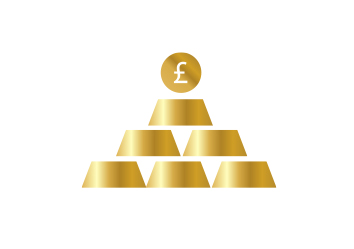
Basel III Could Drastically Impact Gold Prices
In times of yore, it should have been simple, you would hope, to invest in gold and have the physical gold kept safe and secure somewhere as a solid store of wealth. Unfortunately, this is no longer how the international banking system would see it, as many institutions have embarked on risky manoeuvres in order to boost their positioning.
The introduction of requirements laid out in Basel III, the third accord of financial reforms as laid out by the Basel Committee on Banking Supervision, could have a profound impact on the way gold is viewed as an investment. Why is this so, and what could be the potential outcome?
A response to crisis
The global financial crisis of 2007-09 was, without a doubt, one of the worst failures of the global banking system since the Great Depression of the 1930s. Great deficiencies in the ways banks handled their money resulted in unhealthy imbalances within the financial system, creating bubbles and malinvestments which caused money to literally disappear and never return.
In the wake of this crisis, the Basel Committee on Banking Supervision, a Swiss-based committee of banking supervisory authorities created by 10 of the world’s most eminent central bankers, began to pass Accords or recommendations on the necessary changes to banking regulations. The Basel Committee now represents the entire G20 as well as some of the world’s greatest banking hotspots, including Hong Kong and Singapore.
Its recommendations, known as the Basel Accords, have been issued in three waves. The third, Basel III, was agreed upon by the Basel Committee as long ago as November 2010, but its enforcement has been slow and staggered. Full implementation has been pushed back to January 2023 at the latest, with June 2021 marking a major move towards this deadline, with some of the ideas coming into force. But just what does any of this have to do with gold?
The simple fact is, Basel III is intended to limit the risk-taking made by banks, and precious metals such as gold are just some of the assets banks trade in pursuit of a profit, both for their customers or even for their own ends. However, they don’t necessarily buy and sell gold as you might expect to do so, if you value tangible assets. It’s all a question of whether a bank goes for allocated or unallocated precious metals.
Allocated precious metals are simple: the buyer owns an identifiable and demarcated coin or bar of said precious metal, and the bank serves as the means to store this item until the customer wishes to withdraw it. The item belongs to the owner, and so the bank can’t list them as official assets of their own, or as liabilities that are owed to the customer.
Unallocated precious metals, on the other hand, are a different kettle of fish. In this form of storage, the customer doesn’t own a specific gold bar or coin, but serves as an unsecured creditor of the bank with a rightful claim to assets owned by the bank. The bank might just have plenty of unallocated coins or bars in storage, ready to hand over to the customer if they require them. In the meantime, the bank holds these unallocated items as assets of their own, while offsetting it by recording a liability to the customer for the value of the asset.
Changes due to Basel III
So far so good, except there is a clear problem. Banks only expect to have to make small transactions of precious metals in this way at any one time. This means they might have very little by way of physical holdings of gold or silver, as compared to the liabilities they actually have with customers. This means a lot of paper gold assets swirling around the banking system, but little by way of actual gold to back it up.
The system works, until all of a bank’s customers demand to withdraw their gold or silver all at once, much like a conventional bank run like we saw in the UK in 2007-08. This approach to buying and selling gold is effectively fractional precious metals trading, and when banks sell these paper gold contracts, it depresses the value of gold, making it seem as if more gold is on the market, when there is actually much less of it capable of being delivered. The banks might hold just a slither of a liability they owe in physical gold, and find other imaginative ways of covering the rest of their liabilities.
Basel III could produce profound changes to the gold markets, as it will require banks to back up assets with actual reserves. This large portion of Unallocated precious metals or paper gold would no longer be deemed valid reserves to back up the assets that banks claim to have, giving them a conundrum. Either they somehow increase shareholder equity to generate sufficient reserves on the spot to be compliant with the Basel III requirements, or they simply cut their entire unallocated precious metals position.
In short: trade of precious metals could potentially shift away from lots of paper gold to a state of affairs where allocated precious metals become the only game in town. Demand for physical gold could be squeezed very quickly, and unless supply can offset this demand spike, the price of gold could rise rapidly. If you are interested in buying gold, it makes sense to get in touch with us here at UK Bullion. We’re gold specialists and have a range of attractive items including physical bullion and coins.
The clock is ticking on the age of paper gold and physical gold could be about to get its moment in the sun at long last. If you wish to get in touch with UK Bullion to learn more about buying gold or if you have a specific item in mind, call us on 0800 090 3256 today.

+ There are no comments
Add yours